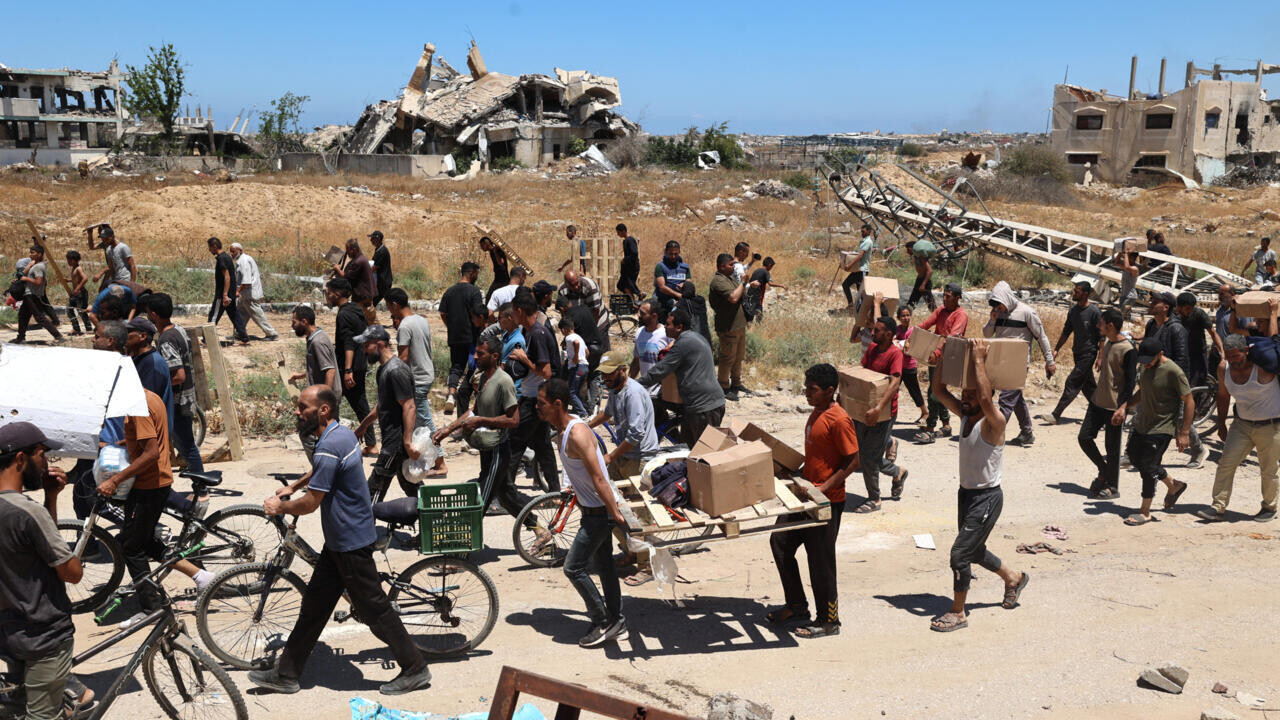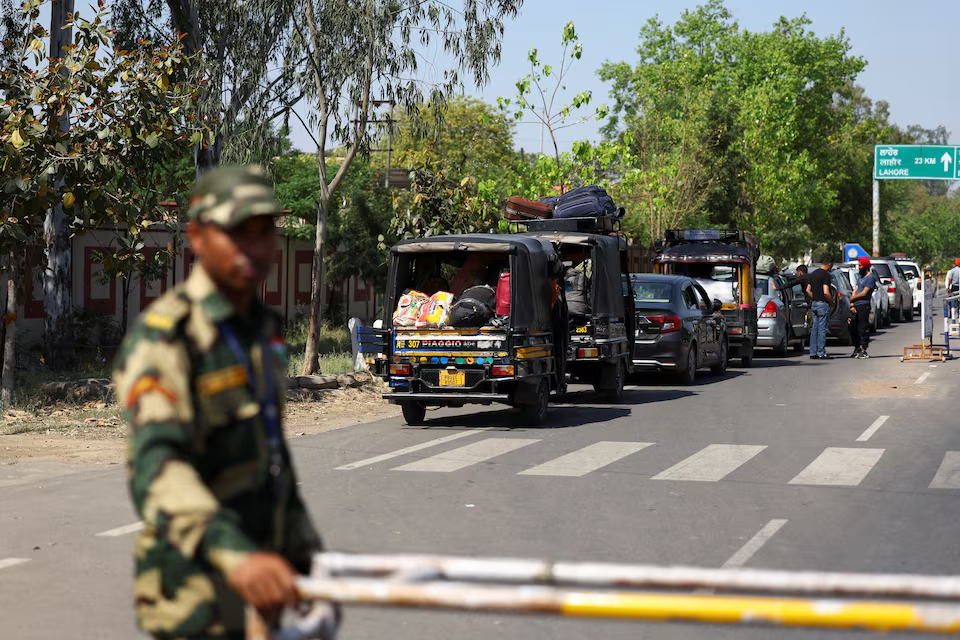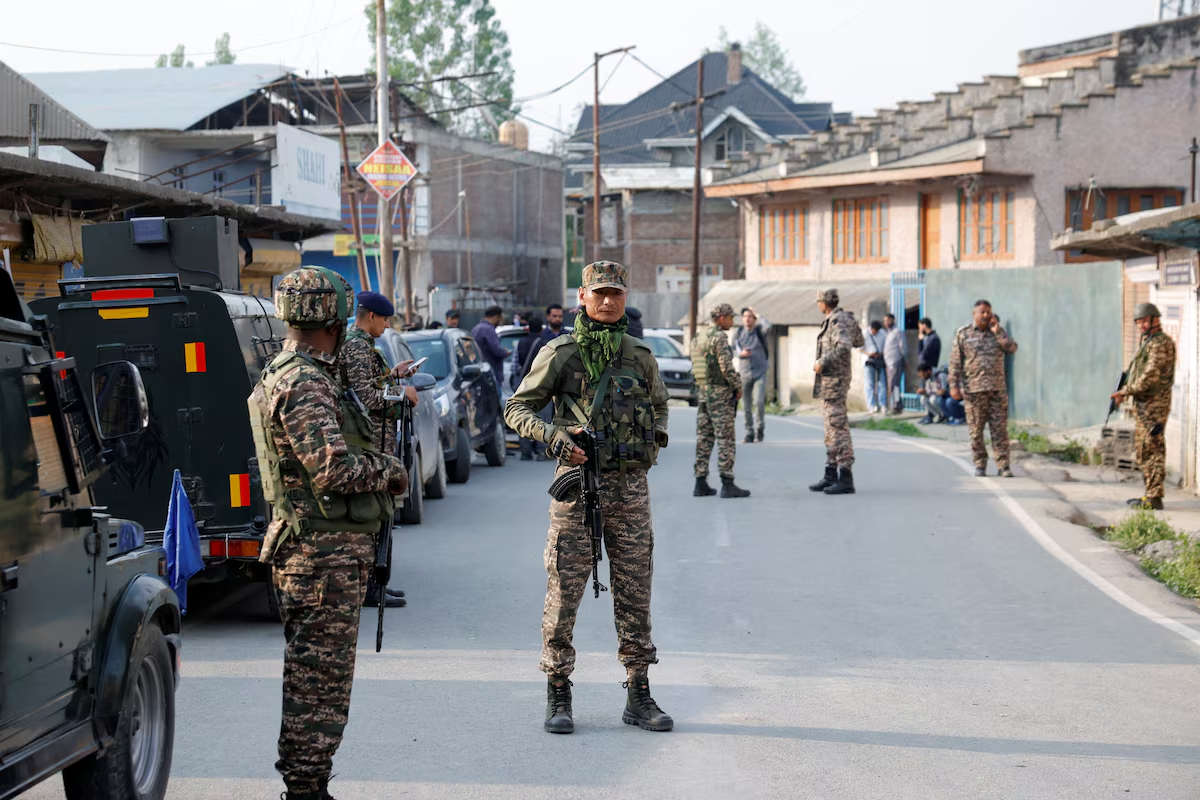At least 44 Palestinians were killed in Israeli air and ground attacks across southern Gaza on Wednesday, according to Gaza’s Health Ministry, while international attention sharpened on reports of Israeli gunfire near a U.S.-supported aid distribution centre, raising fresh concerns about the safety of humanitarian operations.
The surge in violence came as Israeli forces intensified operations in Rafah and other southern areas, following a deadly airstrike earlier this week that ignited global condemnation. Witnesses and emergency workers described widespread destruction across residential blocks, with images showing civilians digging through rubble in search of survivors.
The Gaza Health Ministry said many of the casualties were women and children, and dozens more were injured. Rescue efforts continue under extremely difficult conditions due to fuel shortages and the ongoing blockade, with hospitals overwhelmed and operating on minimal resources.
Meanwhile, gunfire near an American aid centre added to the spiralling crisis. The centre, which coordinates aid trucks into Gaza with U.S. logistical and diplomatic backing, came under fire reportedly from Israeli troops, though details remain under investigation. No casualties were confirmed, but the incident triggered strong reactions from Washington and the United Nations.
A U.S. State Department spokesperson said the Biden administration was “deeply concerned” by the reports and was seeking urgent clarification from Israeli authorities. “Humanitarian aid must be protected. Any threat to the security of aid workers and distribution centres is unacceptable,” the spokesperson stated.
The Israel Defense Forces (IDF) said it would investigate the incident and reiterated its commitment to protecting aid routes. A spokesperson said Israeli forces were conducting “targeted operations” in Rafah to root out Hamas operatives and infrastructure but acknowledged that the combat environment was “extremely complex.”
Israel has faced mounting pressure since a deadly strike on a displacement camp in Rafah earlier in the week killed at least 45 people, prompting rare public criticism from key Western allies. The United Nations and multiple humanitarian agencies have warned that conditions in southern Gaza have become “inhuman,” with over a million displaced residents crammed into makeshift shelters and lacking access to food, water, or medical care.
UNRWA Commissioner-General Philippe Lazzarini warned that Gaza was “sliding into complete humanitarian collapse” and reiterated calls for an immediate ceasefire. “Every hour we delay, more lives are lost,” he said in a statement from Geneva.
Israeli Prime Minister Benjamin Netanyahu has defended the military campaign, insisting that Hamas continues to operate from within civilian areas. Speaking in the Knesset, he stated, “We are targeting terrorists and doing everything we can to minimize harm to civilians. Unfortunately, Hamas uses human shields.”
However, rights groups have challenged those assertions, saying the scale of destruction and the high civilian toll suggest indiscriminate use of force. Human Rights Watch and Amnesty International have called for international investigations into potential war crimes.
The Israeli military campaign, now in its eighth month, began following the October 7 Hamas attack in southern Israel, which left approximately 1,200 Israelis dead and over 250 taken hostage, according to Israeli figures. Since then, the Gaza Health Ministry reports that more than 36,000 Palestinians, mostly civilians, have been killed.
Diplomatic efforts for a ceasefire remain stalled, despite mediation attempts by Egypt, Qatar, and the United States. U.S. Secretary of State Antony Blinken has called for “urgent de-escalation,” but no agreement has been reached. Israeli officials continue to insist that Hamas must release all hostages before any formal truce can be considered.
The European Union and Arab League have also demanded immediate action to prevent further loss of life. In Brussels, EU foreign policy chief Josep Borrell described the situation in Gaza as “a stain on the conscience of the international community.”
As Gaza plunges deeper into humanitarian catastrophe, aid agencies warn that without safe corridors, even emergency relief may become impossible to deliver. The gunfire near the U.S.-backed aid facility has raised fears that humanitarian staff and infrastructure are increasingly at risk in the ongoing war.
Source: France 24



